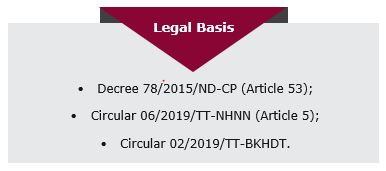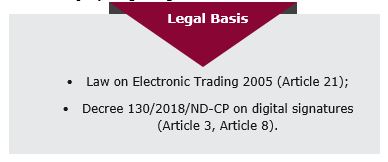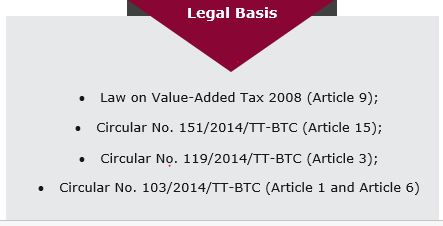KEY LEGAL COMPLIANCES – CHECKLIST FOR NEWLY-ESTABLISHED COMPANIES (P2)
Part 2: Regulatory compliance in the fields of finance, tax, and accounting
Adherence to the laws and regulations right from the beginning will help all the business activities of the company be operated effectively and avoid legal risks. Regulatory compliance requires companies to aspire and attempt to ensure that they are aware of and take steps to comply with relevant laws, rules, policies, and regulations. Due to the increasing number of laws and especially rules and regulations churned out every year, it is also important for companies to follow up on changes in the legal system.
Our Clients engaging in the retainer services at Le & Associates will always be advised thoroughly and comprehensively on legal issues right from the get-go. Within this article, we will provide you with the basic provisions that new businesses should consider as follows:
- Compliance with laws on investment and laws on enterprises (Link: Part 1)
- Compliance with laws on finance, tax, and accounting regime (Link: Part 2)
- Compliance with laws on employment and protection of employee’s rights and interests (Link: Part 3)
6. Opening a bank account and notifying the business registration office
6.1 Opening and use of the Direct Investment Capital Account (DICA)
One of the most important works that each enterprise needs to do after its establishment is to open a bank account for their capital injection and making payments for their business transactions.
You need to work with Commercial banks or Foreign bank branches in Vietnam to know the certain procedures must be followed to open the DICA.
There will be different regulations/policies on registration procedures for opening a bank account at each Commercial bank. However, the dossiers of opening a bank account normally include:
- Application of opening a bank account;
- The Enterprise Registration Certificate;
- The Investment Registration Certificate (for foreign-invested enterprises);
- The decision on appointing a chief accountant/acting chief accountant;
- The copy of a valid Citizen ID/ID card/Passport of the legal representative of the enterprise;
- The copy of the Seal Certificate.
For foreign-invested enterprises performing investment activities in Vietnam, the local laws stipulate that all transactions related to direct and indirect investment activities of foreign investors in Vietnam must be performed through an investment capital account opened at a licensed bank (including commercial banks, foreign bank branches that are allowed to trade and provide foreign exchange services according to the laws). From the time of opening and during the process of using the account, the enterprise must adhere to the following principles:
a. The principle of opening the direct investment capital account (DICA):
- It is required to open the DICA in a foreign currency at 01 (one) licensed bank to carry out lawful in-and-out transactions in foreign currency related to foreign direct investment activities in Vietnam;
- Based on the foreign currency registered to contribute capital of the Company, only 01 (one) direct investment capital account can be opened in the same foreign currency at 01 (one) authorized bank.
- In case of investing in Vietnam dong, it is allowed to open 01 (one) direct investment account in Vietnam dong at the authorized bank where the direct foreign capital investment account in foreign currency has been opened to perform legal receipt and payment transactions in Vietnam dong related to foreign direct investment activities in Vietnam.
b. The principle of using the direct investment capital account:
For FDI companies, the direct foreign capital investment account is used to receive and make transactions as described follows:
- Paid into transactions:
- Injection of owner’s equity or shareholder’s equity foreign direct investment capital contribution in foreign currency from foreign investors, Vietnamese investors in foreign direct investment enterprises;
- Receipt of payment of investment capital, investment projects;
- Receipt the foreign amounts bought from a permitted credit institution to transfer capital or remit profit and permissible earnings from Vietnam to abroad;
- Receipt of the amounts from its own foreign currency payment account opened at a licensed bank;
- Receipt of the investment converted from a foreign currency into the currency of the Company’s DICA where the currency of such investment is different from the currency of the Company’s DICA;
- Receipt of Additional Paid-In Capital from the issuance of new shares to increase charter capital in the FDI companies;
- Receipt of loans from abroad and related amounts of such loans of the FDI companies in accordance with laws on foreign loans and debt repayment of the enterprises (except for cases as prescribed in Clause 3 Article 5 of the Circular 06/2019/TT-NHNN);
- Receipt of other allowable receipts in foreign currency related to the foreign direct investment into Vietnam.
- The allowed payouts:
- Transfer of money to the foreign currency payment account of its own FDI companies, which is opened at the licensed bank, to perform foreign direct investment activities in Vietnam;
- Sale of foreign currency to the permitted credit institutions to transfer the equivalent amount into such FDI company’s payment account in Vietnamese dong;
- Purchase of investment capital or investment projects to the overseas transferor or exchange of foreign currency into Vietnam Dong to make a payment for the transfer of investment capital or investment project to the domestic transferor in accordance with the laws;
- Remittance abroad of profits and transfer other lawful incomes in foreign currency from the foreign direct investment in Vietnam by foreign investors;
- Transfer abroad of the direct paid-in capital in foreign currency by the foreign investors in the event of capital reduction, liquidation, or termination of the investment project in accordance with laws and regulations on investment;
- Exchange of foreign currency for the purpose of transferring out of Vietnam capital, profits, and lawful revenue in connection with the direct investment activities providing that the currency of such capital, profits and lawful revenue is different from the currency of the opened Company’s DICA;
- Payouts related to overseas loans in foreign currency of FDI Companies in accordance with the laws on overseas loans and debt repayment by enterprises, except in cases as prescribed in Clause 3 Article 5 of Circular No. 06/2019/TT-NHNN;
- Allowable payments in foreign currency related to foreign direct investment activities in Vietnam.
6.2 Notification of the Company’s bank account(s)
After completing procedures at your bank to open and active Company’s bank account(s), you need to notify the Business Registration Office of your bank account(s)’ details. This notice must be sent within 10 days from the date of having a bank account. The dossiers of notification must include the following documents:
- Fill-and-print notice of Company’s bank account(s);
- Power of Attorney or Letter of Referral to the person performing the procedures;
- Copy of valid ID card/ Passport of the person authorized.
7. Registration of Company’s digital signature
An electronic signature is created in the form of words, letters, numbers, symbols, sounds, or other forms by electronic means, attached or logically combined with data; it is capable of identifying the signer of the data (electronic documents) and confirm his/her consent to the contents of the signed the electronic documents.
A digital signature, one of the forms of electronic signature, created by the transformation of a data using an asymmetric cryptographic system in which those who have the initial data and a public key of the signer can be determined exactly.
The digital signature of an enterprise has the same legal validity as the enterprise’s seal. Electronic documents signed with the enterprise’s digital signature are generally accepted as those that are printed, signed, and sealed by the enterprise itself.
In cases where the law requires documents to bear the seal of the enterprise, then the requirement for the accepted electronic documents is considered to be fulfilled if such data message/ electronic documents are signed with the enterprise’s digital signature and that the digital signature is secured in accordance with the laws.
To buy the digital signature, you can contact, register with a digital signature service provider.
To perform the procedure for registration of digital signatures, enterprises need to prepare a dossier including:
- A notarized copy of the Business Registration Certificate;
- A notarized copy of the valid Citizen ID/ ID card/ Passport of the legal representative of the enterprise.
8. Declaration and payment of licensing/annual fee
Newly established companies (granted new tax identification numbers and new enterprise identification numbers) will be exempt from licensing fees for the first year after establishment (From January 01 to December 31).
During the aforementioned exemption period, if the enterprise establishes a new branch, representative office, or business location, then the new branch, representative office, or business location shall be also exempted from the license/annual fee for the same exemption period granted to that enterprise.
By January 30 of the year following the year of commencement of production/business or the year of establishment, companies must fill the declaration of the license fee to their direct supervisory tax authorities and pay license fee into the State Treasury.
If an enterprise has its branch, representative office, business location (hereinafter referred to as ‘‘subordinate units’’) that carry on its business within the same provincial-level locality, the enterprise shall submit the licensing fee declaration of such subordinate unit(s) to its direct supervisory tax authority.
If an enterprise has its subordinate units that carry on their business in the different provincial-level locality where the head office of the enterprises is located, the subordinate units shall submit the licensing fee declaration to the tax authority supervising such the subordinate units.
The licensing fee declaration is provided with a form under the form issued with Decree No. 139/2016/ND-CP.
9. Tax registration – The first time
9.1 Which authority will receive and examine your first tax registration
For enterprises that have registered its tax information at the same time of its incorporation, the authority receiving and recording its tax registration is where the enterprises submitted its dossier of establishment as prescribed by laws (In this case, the dossier of company’s incorporation shall include information of tax registration).
Unless such simultaneous registration as mentioned above, enterprises directly registering at the tax authorities shall submit their tax registration dossiers for the first time to the local tax bureau where their head office is located.
9.2 Deadline for the first tax registration
For enterprises that have registered their tax information at the same time of its incorporation, the deadline is not required due to the time for registration is the date of incorporation as prescribed by laws.
Unless such simultaneous registration as mentioned above, the deadline for tax registration is no later than 10 working days from the date of incorporation.
10. Calculation methods of value-added tax
There are 02 different methods of calculating the value-added tax (hereinafter referred to as ‘‘VAT’’):
a. The direct method:
Including:
- Calculated by the added value multiplied by the VAT rate:
- Applied to foreign organizations or individuals without resident offices, but which generate income in Vietnam and have not implemented the Vietnamese Accounting System (VAS).
- The direct method also applies to gold, silver, and gem trading activities. By the direct method, the VAT amount is specified under the following formula:
Payable VAT amount = Added value of sold goods or services * VAT rate
- Calculated by the percentage multiplied by the revenue:
Applied to some cases, including newly-established companies, unless these enterprises voluntarily register to apply the tax credit method. Accordingly, enterprises can voluntarily apply the tax credit method in the following cases:
- Newly established companies are derived from a project of a business establishment that pays VAT using the tax credit method.
Newly established companies invest in a project approved by a competent authority and voluntarily applies the tax credit method.
Newly established companies whose investment project which is not approved by a competent authority under the law on investment but have an investment plan approved by a competent person of the company and voluntarily applies tax credit method.
- New established companies that make investment, purchases or receive capital contribution in the form of fixed assets, machinery, equipment, tools, or has a contract to lease business premises.
b. The credit method:
For this method, the VAT liabilities are calculated by offsetting inward VAT with Outward VAT. Specifically:
Payable VAT amount = Outward VAT – Inward VAT
Cre: tbsnews.net
Therefore, newly established companies are subject to the method of calculation of tax based directly on an added value which is calculated by percentage multiplied by turnover. However, the enterprise may voluntarily apply a tax credit method in the aforementioned cases.
11. VAT reporting & lodgement
There are 02 periods for VAT declaration:
- For taxpayers whose turnover did not exceed VND50 billion in the previous year, Quarterly VAT declarations and payments by the 30th day of the month following the end of the quarter are permitted.
- In case of ineligibility to declare quarterly as mentioned above, Monthly VAT is to be declared are remitted by the 20th of the following month.
What about the VAT reporting & lodgement of the first year, when the company’s turnover has not been recorded? According to Article 15 of Circular No. 151/2014/TT-BTC, the taxpayer that has just begun his business shall declare VAT quarterly. In the next calendar year after 12 months of business, VAT declarations shall be declared whether monthly or quarterly depending on the revenue from the sale of goods and/or services in the preceding calendar year (12 months).
Example: Company A begins its business from January 2020, thus VAT shall be declared quarterly in 2020. Next year, the company will base on the revenue in 2020 (full 12 months of the calendar year) to determine whether to declare tax monthly or quarterly in 2021.
12. CIT reporting & payment
The provisional Corporate Income Tax – CIT is required to calculated (based on estimates) and remitted every quarter, no later than 30 days following the end of a quarter. The CIT declaration is not required to submit quarterly.
13. PIT reporting & payment
Based on the residency status of individuals in Vietnam, the Personal Income Tax (“PIT”) shall be subject to varying progressive rates or fixed tax rates.
Resident individuals in Vietnam must pay PIT on their worldwide income. The PIT payable amount shall be calculated under the progressive rates from 5% – 35%.
Non-resident individuals, who can prove they are Tax Resident in another country, are only taxable in Vietnam on their Vietnamese sourced income. The PIT payable amount shall be calculated under the fixed rate of 20%.
What should be noted here?
Individuals are subject to a calendar year as their standard tax year. Your company – the employer is required to withhold PIT from employee salaries and remit monthly or quarterly. Other taxes are generally required to be withheld at source (ie, dividends), or self-declared by the individuals on the basis of an event.
Within 90 days from the end of a tax year, individuals will need to determine whether they will need to undertake annual tax finalization. If an individual only has income from a single employer during the year, then they can authorise their employer to finalise on their behalf.
14. E-invoices registration
For newly established companies from November 1, 2018, to October 31, 2020, if they received a request from the tax authority on implementing e-invoices in accordance with Decree No. 119/2018/ND-CP, these enterprises must follow the tax authority’s instructions.
In case, the tax authority has announced, however, the enterprise has not yet met information technology infrastructure requirements, the enterprise may register to issue invoices under Decree No. 51/2010/ND-CP and Decree No. 04/2014/ND-CP and guiding documents, but new enterprised must submit invoice data to tax authorities by using the Form No. 03 in the Appendix enclosed with Decree No. 119/2018/ND-CP and submit its VAT declaration.
If the tax authority has not notified the newly established company using electronic invoices in accordance with Decree No. 119/2018/ND-CP, the enterprise shall register to issue self-printed invoices, ordered invoices, electronic invoices, or buy invoices of tax authorities (in case of invoice purchase) and carry out administrative procedures on invoices according to Decree No. 51/2010/ND-CP, Decree No. 04/2014/ND-CP and guiding documents.
15. Appointing chief accountant and acting chief accountant.
According to Law on Accounting 2015, enterprises established and operating under Vietnam law that have financial statements are called accounting units.
Depending on the scale of operations, management requirements, the enterprise will organize its accounting division (Accounting Department/Division/Hiring accounting service, etc)
According to Article 20 Decree No. 174/2016/ND-CP, the accounting unit must arrange a chief accountant (except for micro-enterprises). In the cases where a unit is not able to appoint a chief accountant at the time, it may appoint an acting chief accountant or outsource chief accountant works according to the law. An acting chief accountant will hold the position for up to 12 months, after which a chief accountant shall be appointed (except for micro-enterprises).












